Special Report
October's Most Inspiring News Stories
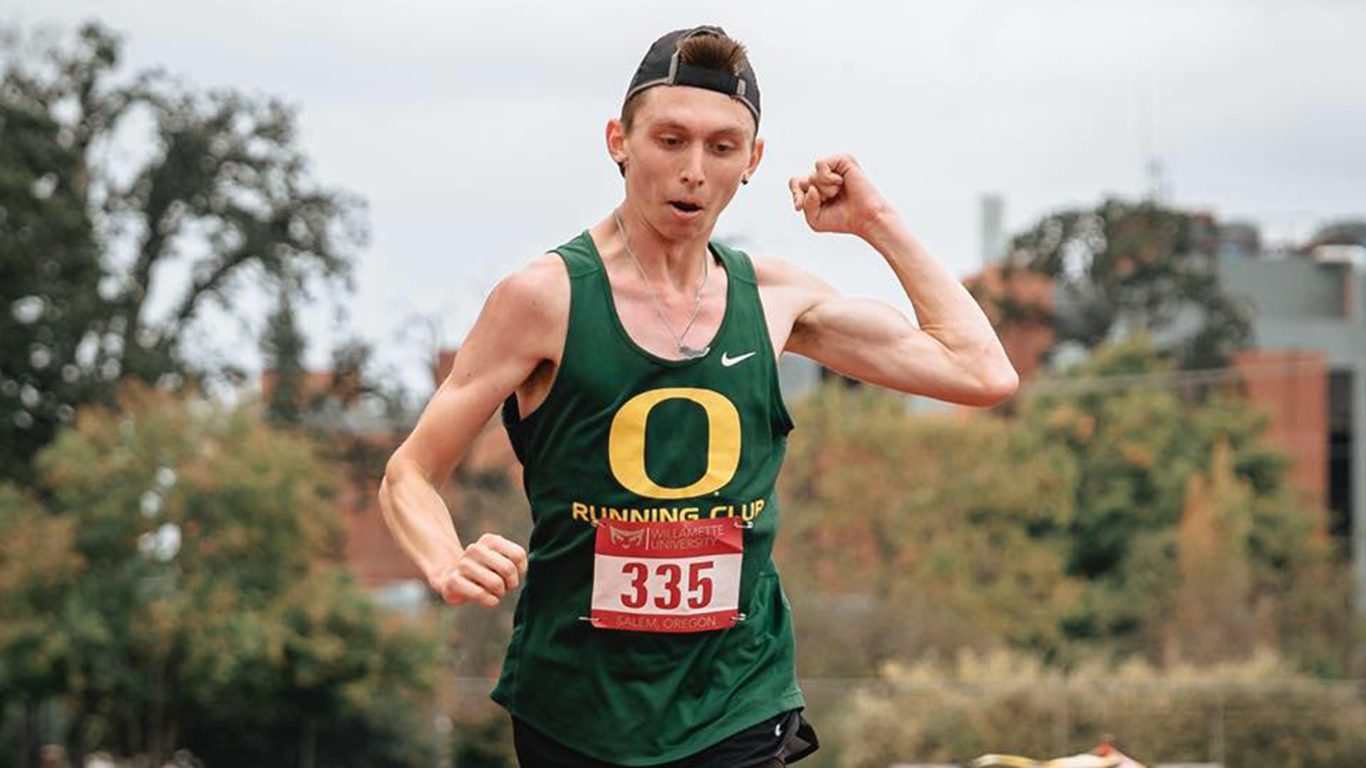
Published:
Last Updated:

If ever we needed a month of good news, it was this one. October was marked by the horrific shooting in a synagogue in Pittsburgh and the pipe bombs sent to Democratic politicians, media, and entertainment celebrities that did not detonate. Political divisiveness shifted into a higher gear as the midterm elections approached. The gyrating stock market had investors reaching for the Dramamine.
In October, we were still dealing with the aftermath of the hurricanes that swept through the South and the Eastern Seaboard. Hurricane Florence ravaged the Carolinas in September, and Hurricane Michael packed a powerful punch in the Florida Panhandle in early October. Michael posted winds of about 155 miles per hour, and based on that measure, was the strongest storm to hit the continental United States since Hurricane Andrew in 1992.
If nothing else, the tempests produced some of the best in humanity. A friend set up a GoFundMe campaign for a National Guardsman whose house was robbed after he was deployed for hurricane relief efforts. The campaign raised more money than its goal, so the guardsman donated the extra cash to other charitable endeavors.
Click here to see October’s most inspiring news stories.
The month produced another first-responder who went beyond the call. Firefighters are always on call, even on their wedding day. In St. Paul Park, Minnesota, firefighter Jeremy Bourasa exchanged vows with new wife Krista, then took off to help comrades fight a house fire.
Internationally, North and South Korea have taken more steps to ease tensions on the peninsula as the two countries began removing landmines on either side of the demilitarized zone.
In a demonstration of life affirmation, one year after the mass shooting in Las Vegas at a country music concert, two survivors returned to the Las Vegas site and were married there.
Justin Gallegos, a runner from the University of Oregon, became the first athlete with cerebral palsy to be signed to a professional contract with footwear giant Nike.
There were other reasons to be optimistic during the month of October, as the following stories indicate.
Methodology
To compile a list of good news, 24/7 Wall St. used information from media outlets such as CNN.com, theweek.com, as well as websites that focus on reporting inspiring news like positive.news and goodnewsnetwork.org.

Hurricane Florence, which slammed into the Carolinas in September, reunited two men who had crossed paths 18 years ago under life-saving circumstances. Bill Ford and his neighbors were trapped in their neighborhood by hurricane floodwaters that had created a 10-foot deep chasm in their neighborhood. Businessman Winston Marsden organized a group to help repair the drop caused by the washout. When Ford met Marsden to discuss the logistics of the repairs, they realized they had met before. In 2000, Ford, then a deputy with the Amelia County Sheriff’s Department, helped rescue Marsden, whose vehicle had fallen into a creek
[in-text-ad]

Not long after saying “I do,” firefighter Jeremy Bourasa bolted from his own wedding ceremony to answer a call for a house fire in a nearby town. Bourasa’s wife, Krista, is used to adjusting to life on the fly. They had to change their wedding reception venue from several weeks earlier and chose to hold the event in the St. Paul Park firehouse. After three hours, Bourasa returned to the wedding reception and danced with his new wife. Krista knows tragedy — she had lost a niece and a nephew in a house fire two years earlier.

A new implant is helping four people who had been paralyzed from the waist down walk independently. Two of the people participating in the study had complete spinal cord injuries and the new spinal implant has enabled them to walk. The other two participants were able to stand and take a few steps. Eight to nine weeks prior to the insertion of the implant, the participants started working on their motor skills by stepping on a treadmill two hours a day, five days a week.
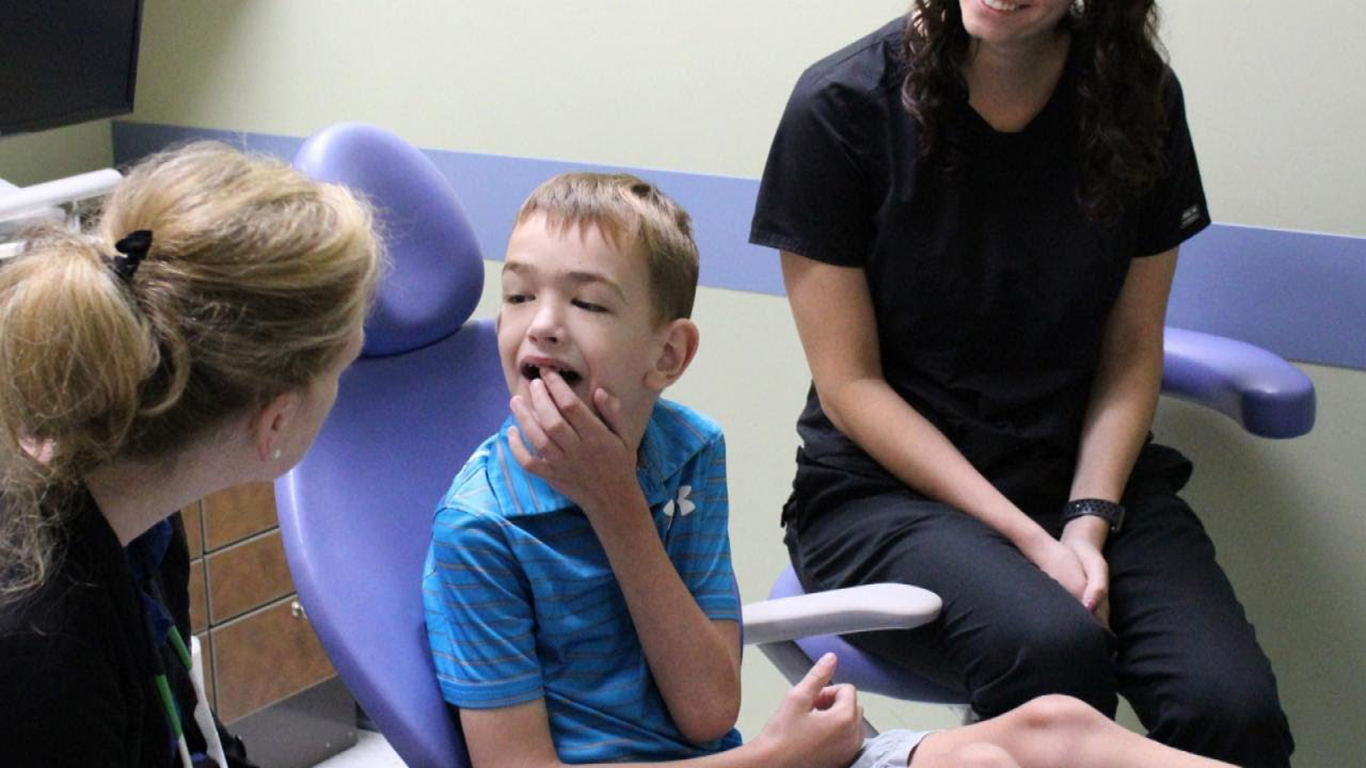
For the first five years of his life, Mason Motz could hardly speak. That was until he visited his dentist, Dr. Amy Luedemann-Lazar. While Motz was sedated, she discovered he was literally tongue-tied, a condition called ankyloglossia, in which the person’s tongue is connected by a piece of tissue to the bottom of the mouth. The dentist performed noninvasive surgery to release the tongue, enabling Motz to become a chatterbox.
[in-text-ad-2]
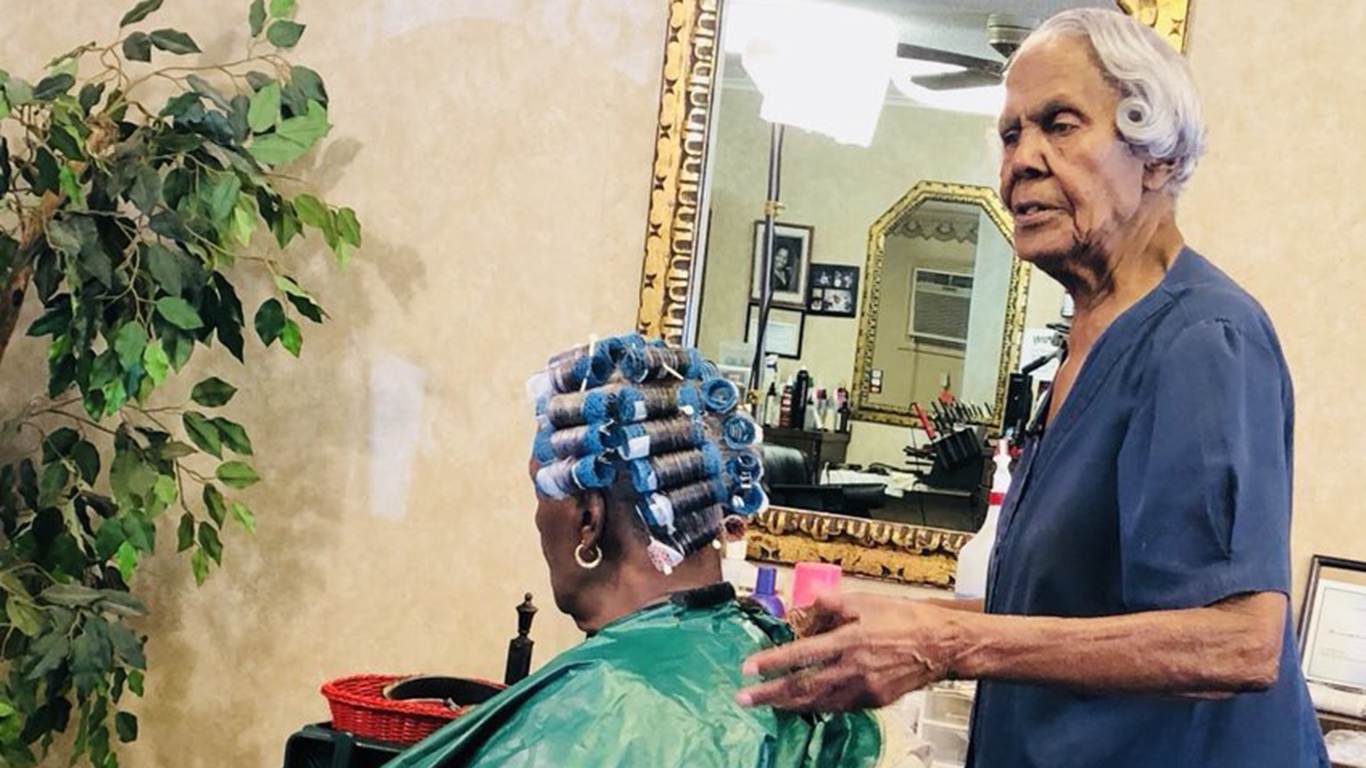
Callie Terrell received her cosmetology license in the waning months of World War II. Now 99, the beautician has decided to retire when she turns 100 on Nov. 26. She credits work for her longevity. Terrill once operated her own salon, but now she rents space in a shop in Memphis.

California Gov. Jerry Brown signed into law the first measure in any state that prohibits the sale of animal-tested cosmetics. After the law takes effect on Jan. 1, 2020, manufacturers will be banned from importing, selling, or offering to sell any cosmetics any cosmetics that were tested on animals. Similar laws have been passed in Norway, Israel, and India. The most common animals used for cosmetics testing are rats, mice, guinea pigs, and rabbits.
[in-text-ad]
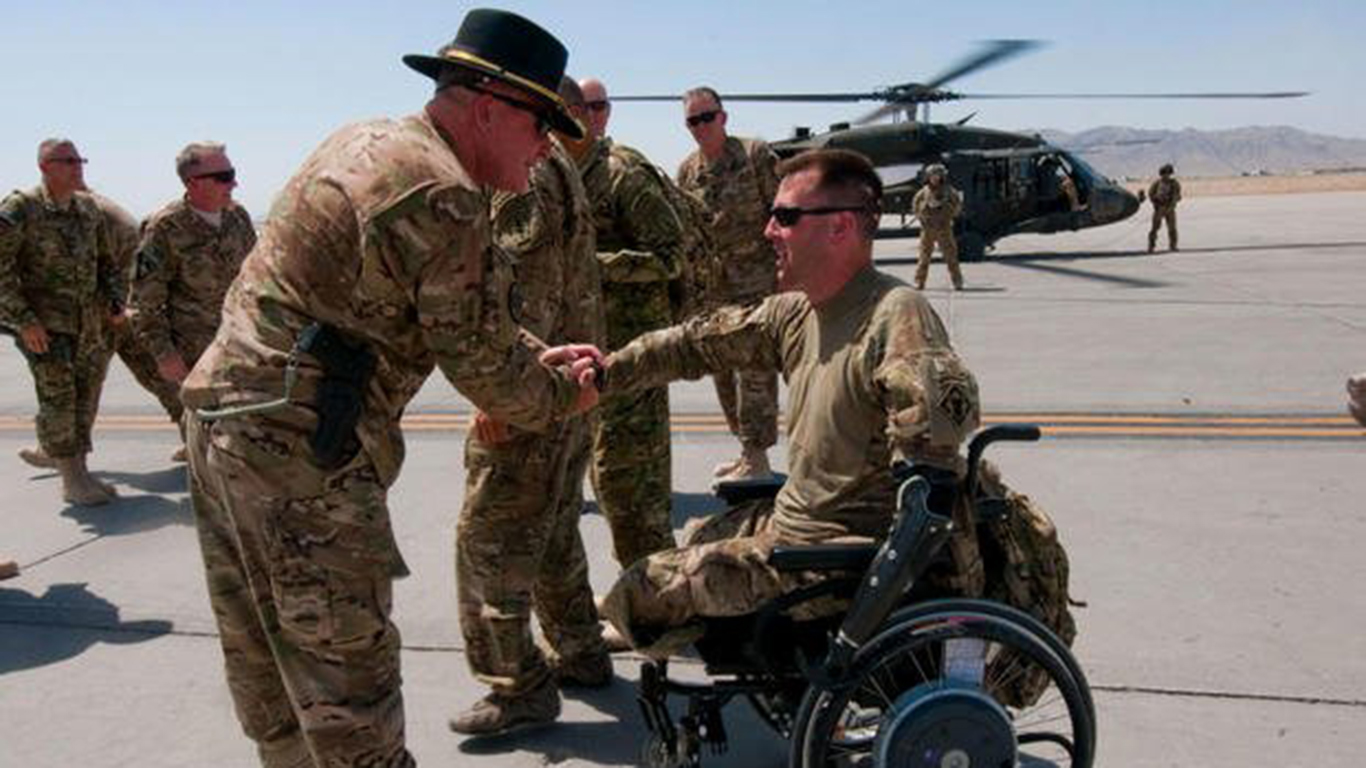
Veteran Adam Keys climbed this month to the top of the Mount Kilimanjaro in Tanzania, which is known worldwide as one of the most intense altitude mountain treks. The former Army paratrooper lost his legs in Afghanistan eight years ago after a roadside bomb went off near the vehicle he was riding in. He lost both of his legs and his left arm. Keys has undergone over 100 surgeries since 2010, having to re-learn how to walk and talk again. This month, he accomplished something most people with all four limbs wouldn’t even try. With the help of specialized walking sticks, leg implants, and a huge amount of determination, Keys made it to the summit of Africa’s most treacherous hike.

Reader’s Digest magazine named Yassin’s Falafel House the nicest place in America this month. The owner, Yassin Terou, is adored by many in Knoxville, Tennessee, since he arrived as a refugee in 2011. Terou’s falafel may be delicious, and his customer service skills may be exceptional, but that’s not why his business was deemed the nicest in the U.S. — it’s the way that Terou combats hatred — he’ll bring in anyone for dinner.
Last Christmas, at the Nativity scene at Knoxville’s First Baptist Church, a man wrapped in an American flag was claiming that immigrants were hindering his chances of getting a job. An immigrant himself, Terou went into the crowd and offered to buy the distressed man dinner. He also offered him a job at his falafel house. Terou told Reader’s Digest, “I always invite anyone who hates us to the store. I want them to know us more. When you break bread, you break hate.”
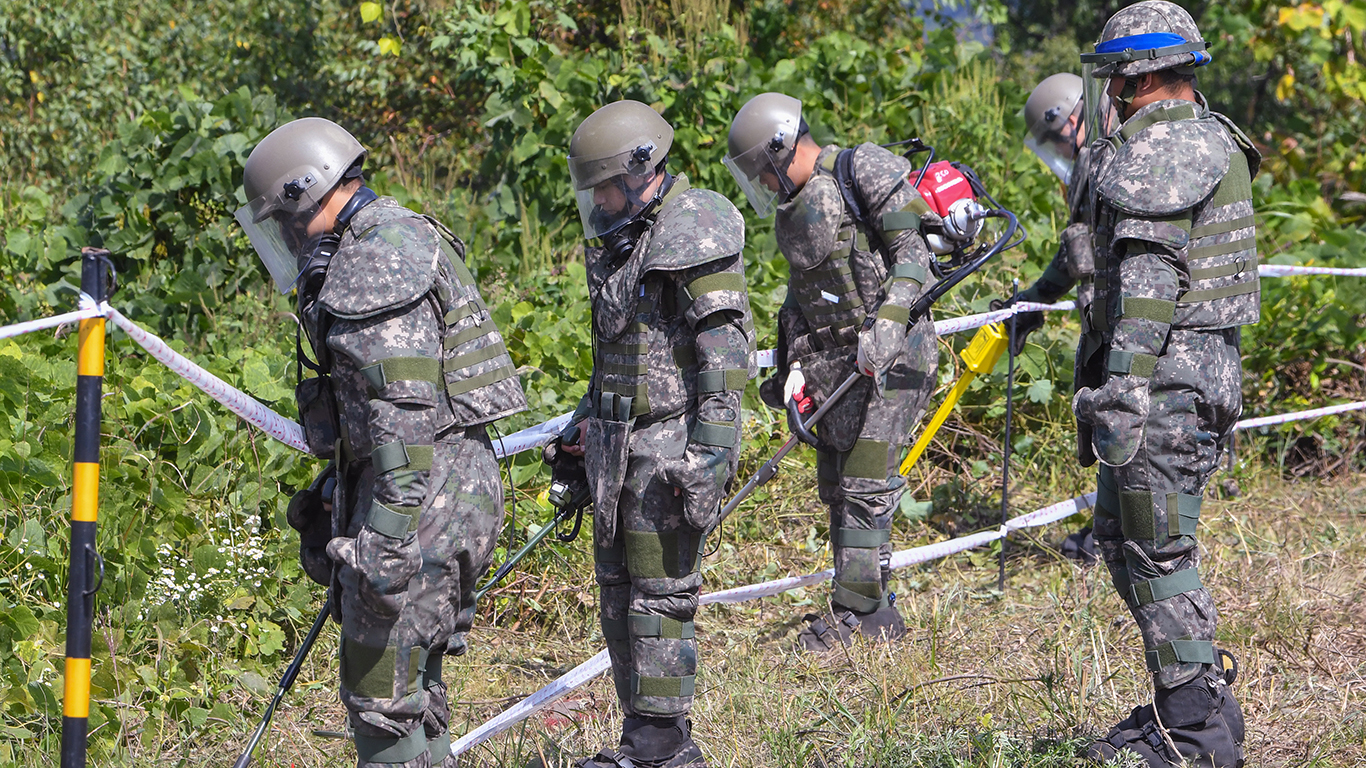
In another step toward reducing tensions on the Korean peninsula, North and South Korea have begun clearing landmines on each side of the demilitarized zone. There are reportedly more than 2 million mines along the zone. The DMZ is the no-man’s land area that stretches over 155 miles and bisects the peninsula. It has separated the two Koreas since a ceasefire halted fighting in 1953. Once the mine clearing is completed, the two sides plan to remove guard posts on the border. The two nations also plan to retrieve the remains of those who are buried along the DMZ.
[in-text-ad-2]

A couple turned the site of one of the worst days of their lives into the site of a joyous day earlier this month. Country music fans Regina Harris and Billy Bob Mason fled in terror a year ago when a gunman opened fire on those attending a country music concert in Las Vegas. During the onslaught, Mason was shot in the foot. The two returned to exchange marriage vows at a memorial garden just off the Las Vegas Strip
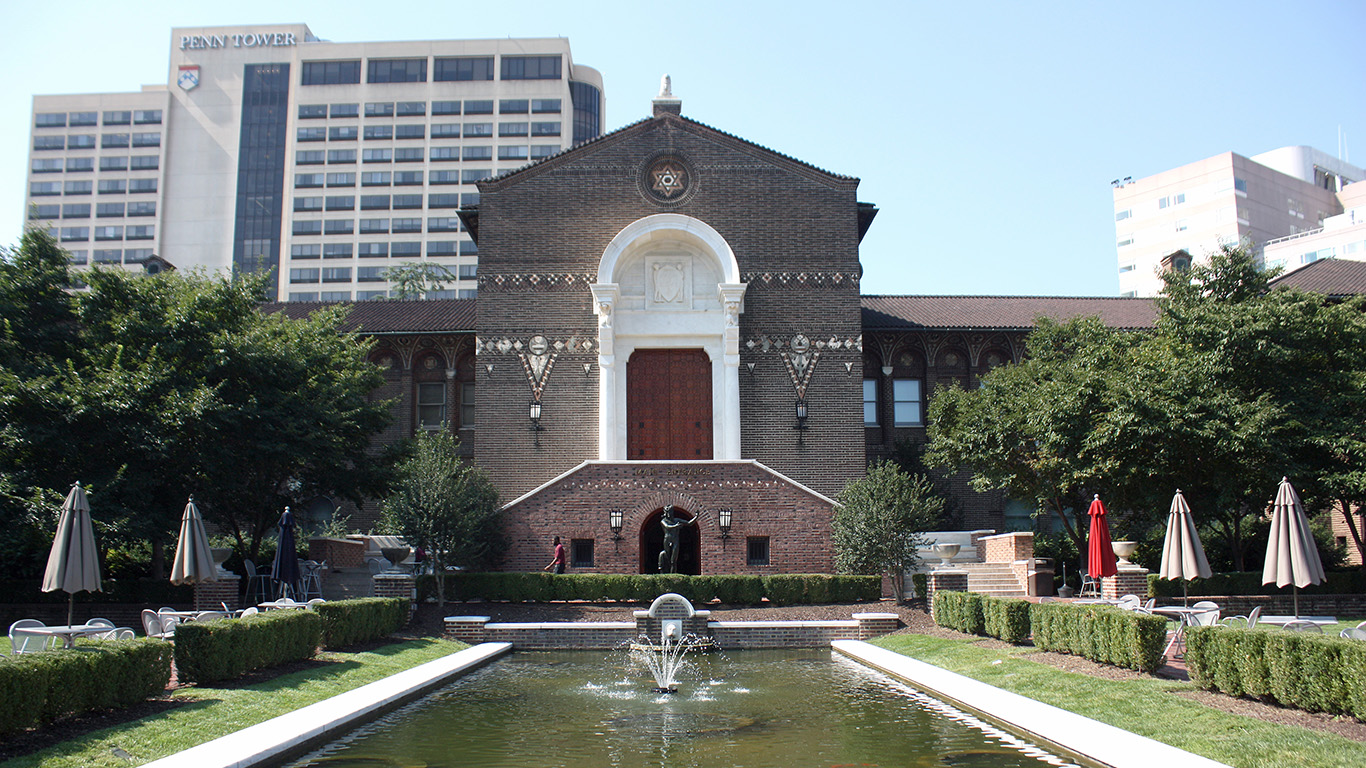
The University of Pennsylvania Museum of Archaeology and Anthropology in Philadelphia is not like most museums of its nature. The tour guides of the Middle East gallery are refugees from Iraq and Syria. It’s a win-win situation for both parties involved. The refugees are given work and, in return, museum-goers get to listen to explanations about ancient artifacts from someone who grew up in that region and can add modern context. The tour guides also are trained to integrate their personal stories and memories into each tour they lead.
[in-text-ad]

Early last month, Joel Alsup and Lindsey Wilkerson of Memphis, Tennessee, got married after nearly 30 years of friendship. They first met at St. Jude Children’s Research Hospital as children in the 90s. Alsup was diagnosed with osteosarcoma, a form of bone cancer, which lead to the amputation of his right arm. Wilkerson had leukemia. The two became very close as children but lost touch around the time they left Tennessee for college in different states. The love birds found their way back to Memphis and reconnected. People magazine wrote about their story on Oct. 2.
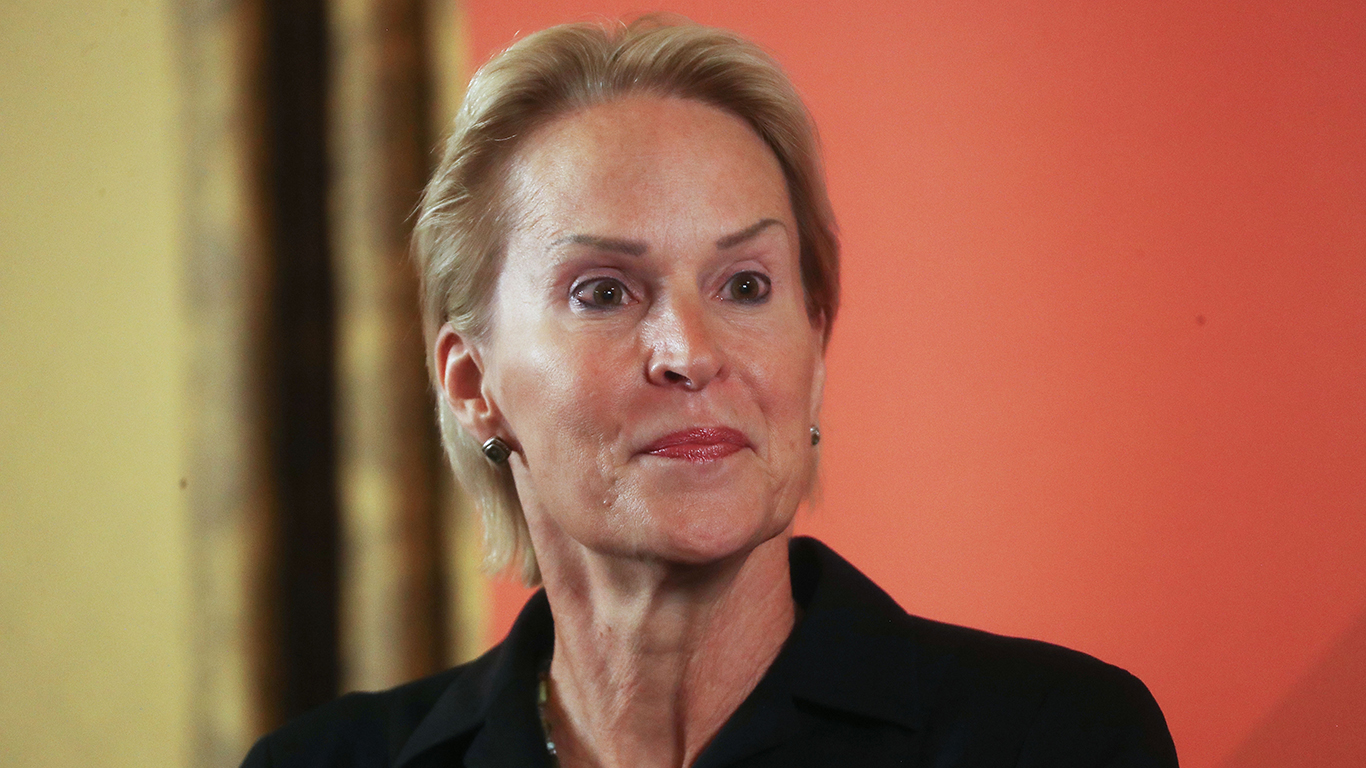
Two women made history this month when they won the Nobel Prize in fields that men have historically dominated. Francis H. Arnold became the fifth woman to win the Nobel Prize in Chemistry, and Donna Strickland became the third woman to win the Nobel Prize in Physics. Strickland is a professor of physics at the University of Waterloo in Canada, and Arnold is a professor of chemical engineering at the California Institute of Technology.
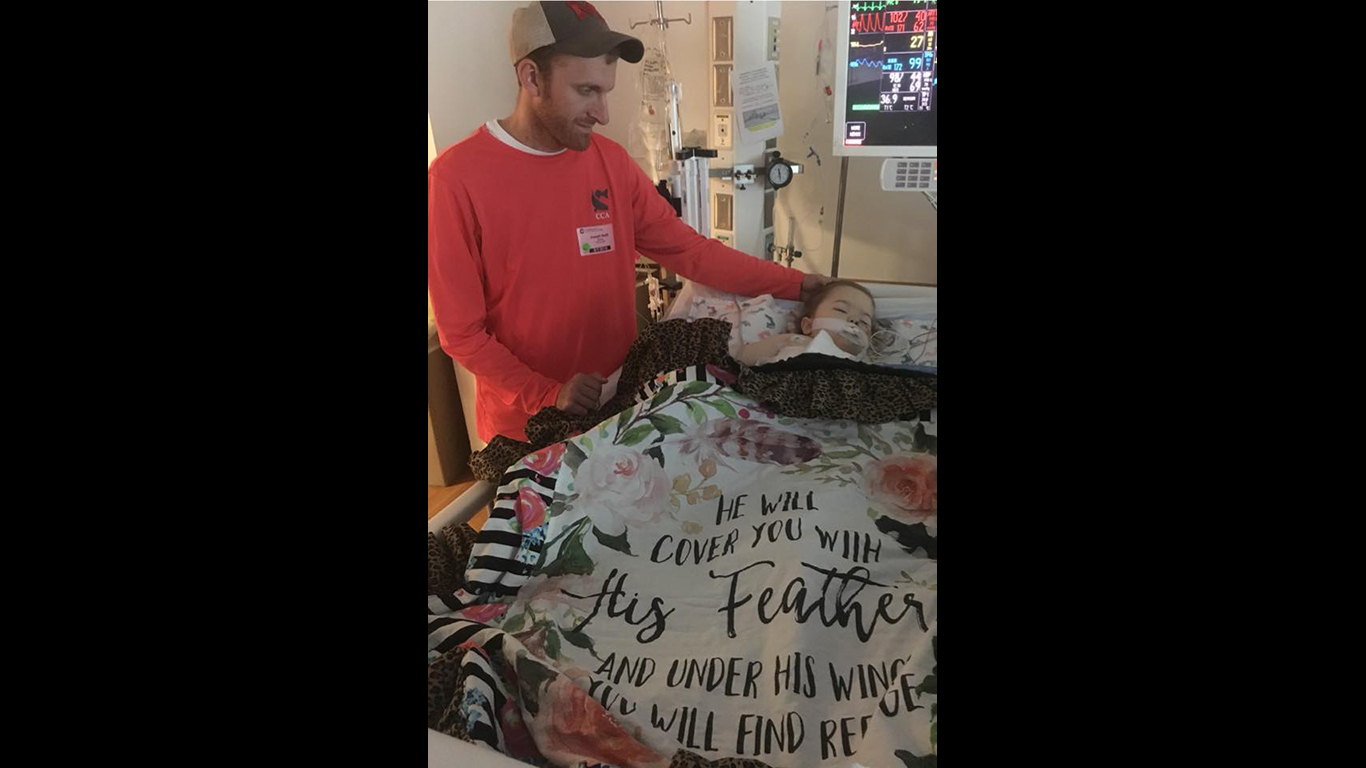
A rare kidney disease put Lilah Joiner’s life at risk, but she was saved when donors came forward to donate a kidney and a liver for her. Three-year-old Lilah was born with the condition called autosomal recessive polycystic kidney disease, which causes cysts to develop within the kidneys and can lead to the loss of kidney function. After she was born, her kidney became so enlarged that it posed a risk for liver failure. Doctors recommended a multi-organ transplant. On July 31, 2018, a year to the day she was put on the list for a transplant, Lilah had two living-donor transplants. Joseph Smith, husband of her mother’s best friend, was her liver donor, and family friend Missy Lathem was her kidney donor.
[in-text-ad-2]

Justin Gallegos isn’t your ordinary competitive long-distance runner. Gallegos has cerebral palsy, a neurological disorder that affects motor skills, movement, and muscle tone. Despite such limitations, Gallegos has been running for seven years, and this month his hard work paid off. Nike signed the University of Oregon junior as a professional athlete, the first person with CP to become a pro athlete signed by the giant athletic gear company.

Two Dutch scientists Eric Klarenbeek and Maartje Dros have developed a method that uses algae material to replace the use of plastics. The Dutch scientists grow the algae, harvest it, dry it, and convert into material that can be used in 3D printers to replace plastic items such as tableware and shampoo bottles. The two are providing each restaurant in their city of Zaandam with sets of flatware made from the algae-plastic.
[in-text-ad]

Minnesota teenager Chris Felix saved a life on Oct.7, but not just any life. He saved a squirrel by performing gentle chest compressions on its chest for about 20 minutes. Felix had accidentally hit the squirrel with his car and felt compelled to help it. He eventually revived the squirrel and it darted off into the forest.

Army medic Luis Ocampo left his home in Charlotte, North Carolina, to help with relief efforts during Hurricane Florence in September. His girlfriend took their baby with her to her parents’ house to escape the hurricane, so the house was empty. When they returned, they discovered the house had been robbed. A friend of Ocampo’s started a GoFundMe initiative to raise money to replace their belongings. Within two weeks, the campaign raised $15,000, well past the goal of $5,000. Ocampo and his girlfriend asked their friend to shut down the GoFundMe campaign. They keep the amount they needed and donated the remainder to the Soldier and Airmen Assistance Fund and other servicemen who had been affected by the hurricane.
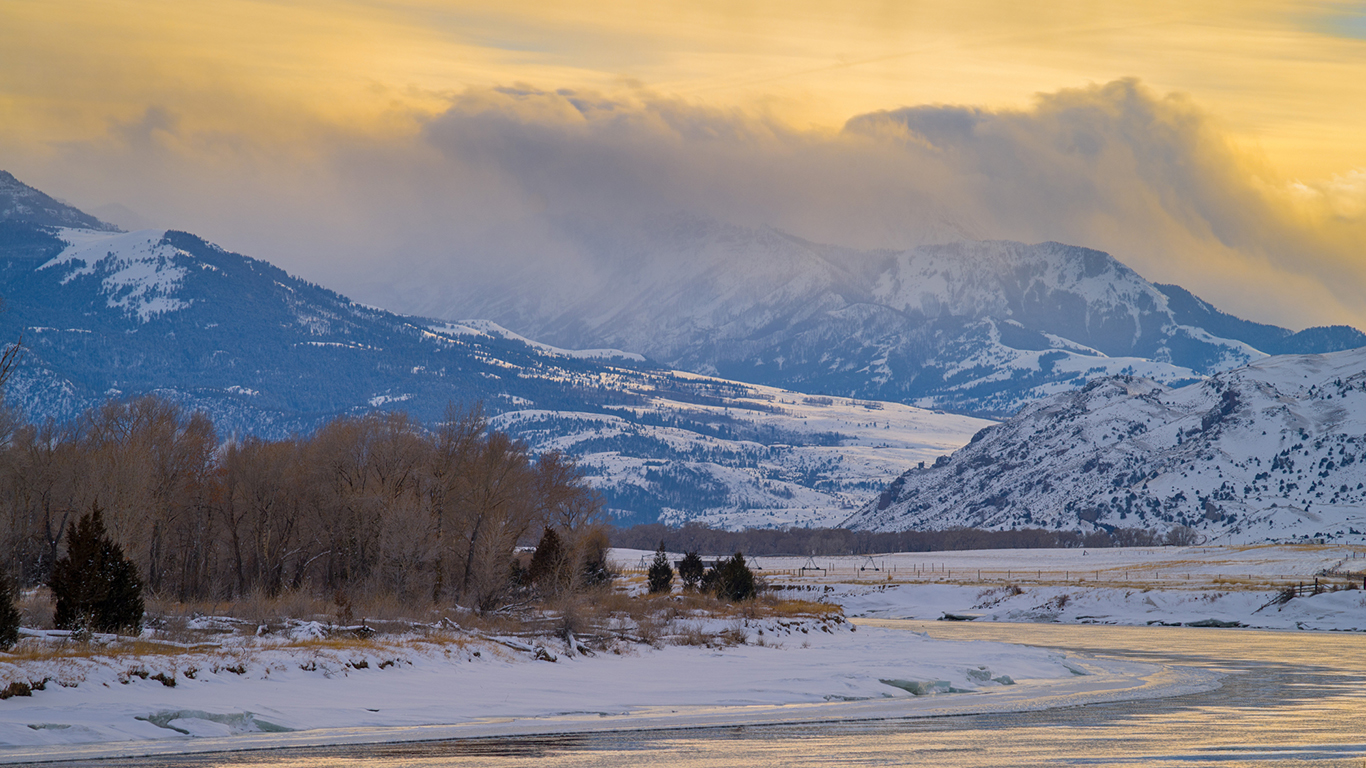
The U.S. has told mining companies to keep their hands off the land north of Yellowstone National Park after Interior Secretary Ryan Zinke approved a 20-year ban on new mining claims near the iconic park. There had been concerns the two proposed gold mines for the area could spoil the area, which is visited by wolves, elk, bears, among other wildlife.
The order extends a temporary ban imposed in 2016 under former President Barack Obama on new claims for gold, silver, and other minerals on 47 square miles of public lands.
[in-text-ad-2]
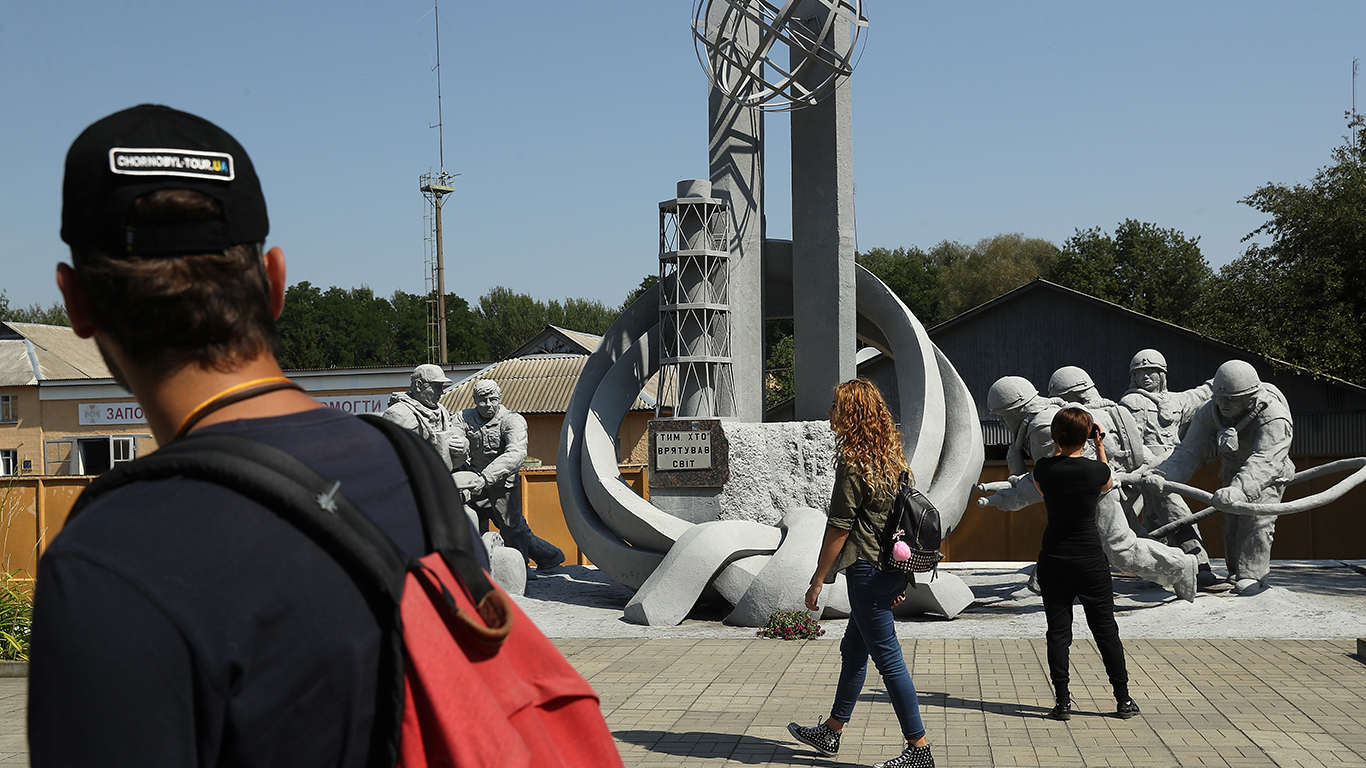
Three decades after the world’s worst nuclear disaster, officials revealed a solar plant in Chernobyl, just across from the entombed power station. The solar plant in Chernobyl has 3,800 panels that produce energy for 2,000 apartments. It is the first time the Chernobyl site has produced power since 2000.
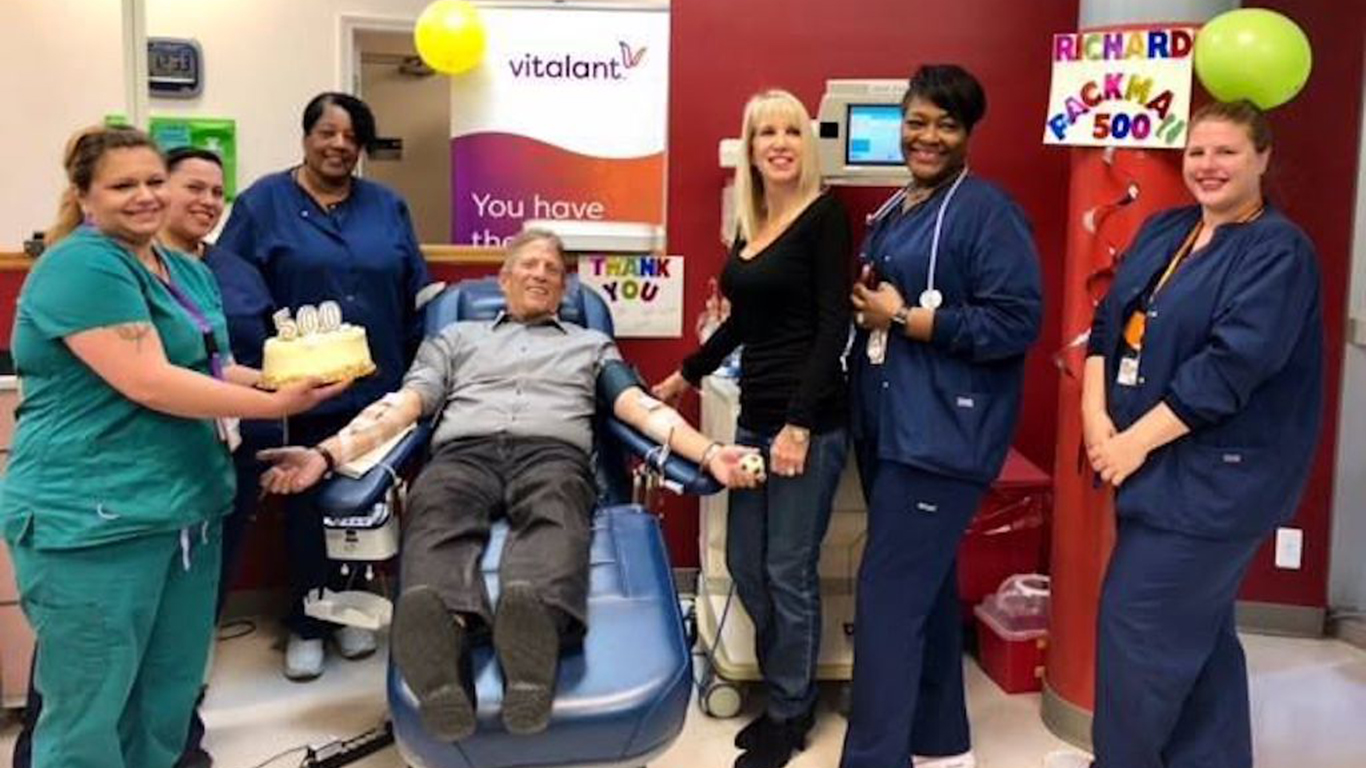
More than two decades ago, Richard Packman first donated blood, and he hasn’t stopped since. Packman, 74, has donated blood 500 times over that two-decade span. Packman said a phlebotomist — the person who draws the blood — told him that he had big veins and could be a candidate to be a platelets donor. Packman obliged. For platelets donors, the platelets are removed from the blood by a machine and the blood is then returned to the body. “I really enjoy being a platelets donor because you really know you’re saving lives,” Packman told the Chicago Tribune.
[in-text-ad]

It took three years, but Tennessee pharmacist Phil Baker was finally able to change a Tennessee pharmacy law to allow persons to donate unused prescriptions. The last obstacle was surmounted in early October, after Baker received final approval from the U.S. Department of Health and Human Services. Baker is the founder of the Good Shepherd Pharmacy, which donates medicine to those who cannot afford it. Members in the program pay $40 a month and receive their medications at cost or no charge.
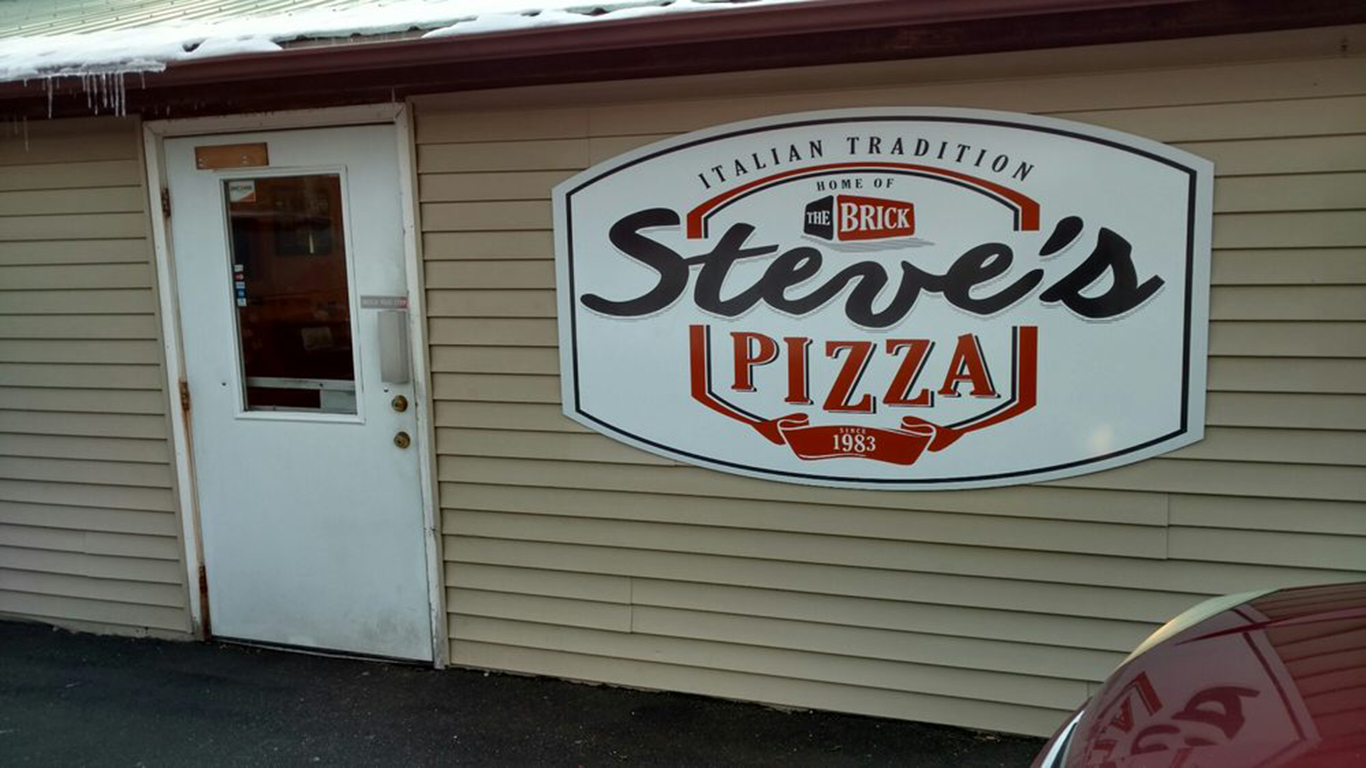
Steve’s Pizza in Battle Creek, Michigan, doesn’t normally make deliveries, but the pizzeria made an exception. Julie and Rich Morgan lived in the Michigan city for several years and frequented Steve’s Pizza before moving to Indianapolis. The couple had planned to celebrate Julie’s birthday at the pizzeria. However, Rich Morgan was hospitalized because of salivary gland cancer and the Morgans could not make the trip. So Steve’s Pizza delivered two pizzas — pepperoni and pepperoni and mushroom — to them in Indianapolis, 3.5 hours, one way, away.

When Rishab Jain found out how lethal pancreatic cancer was, he got to work. The 13-year-old from Oregon won the Young Scientist Challenge for developing an algorithm that uses artificial intelligence to track the pancreas. The pancreas can be hard to find during radiation treatment as it can be hidden behind other organs. Because of this, radiation can accidentally touch healthy cells. Jain’s invention improves the accuracy of tracking the pancreas and the effectiveness of the radiation treatment.
[in-text-ad-2]
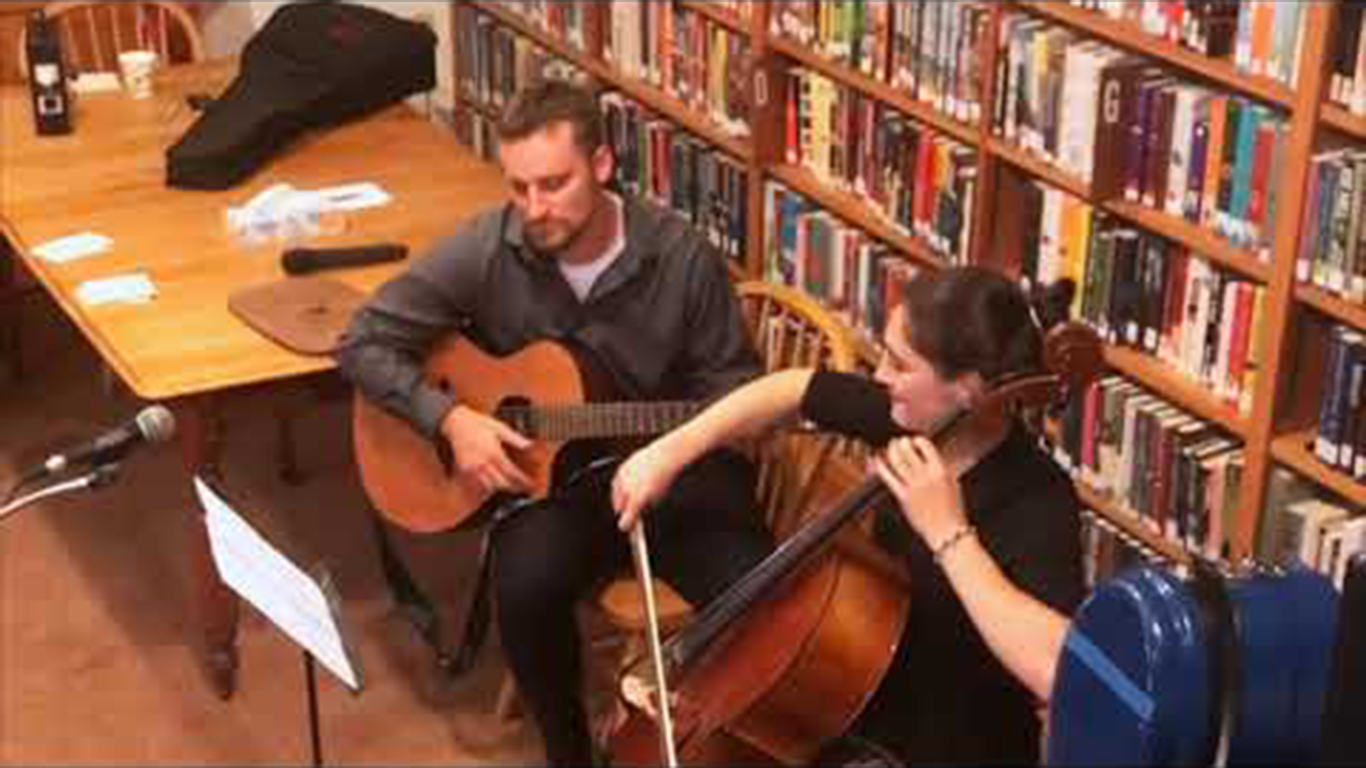
As opposing candidates for a state legislative seat in rural Lamoille County in Vermont, Republican Zac Mayo and Democrat Lucy Rogers have little in common. But what they share is a love of music, and during a campaign marked by vitriol and divisiveness across the country, the political foes put aside their differences and performed the song “Society” as a duet at a local library. Mayo played guitar, and Rodgers played the cello. Music, and politics, do make strange bedfellows.
Thank you for reading! Have some feedback for us?
Contact the 24/7 Wall St. editorial team.